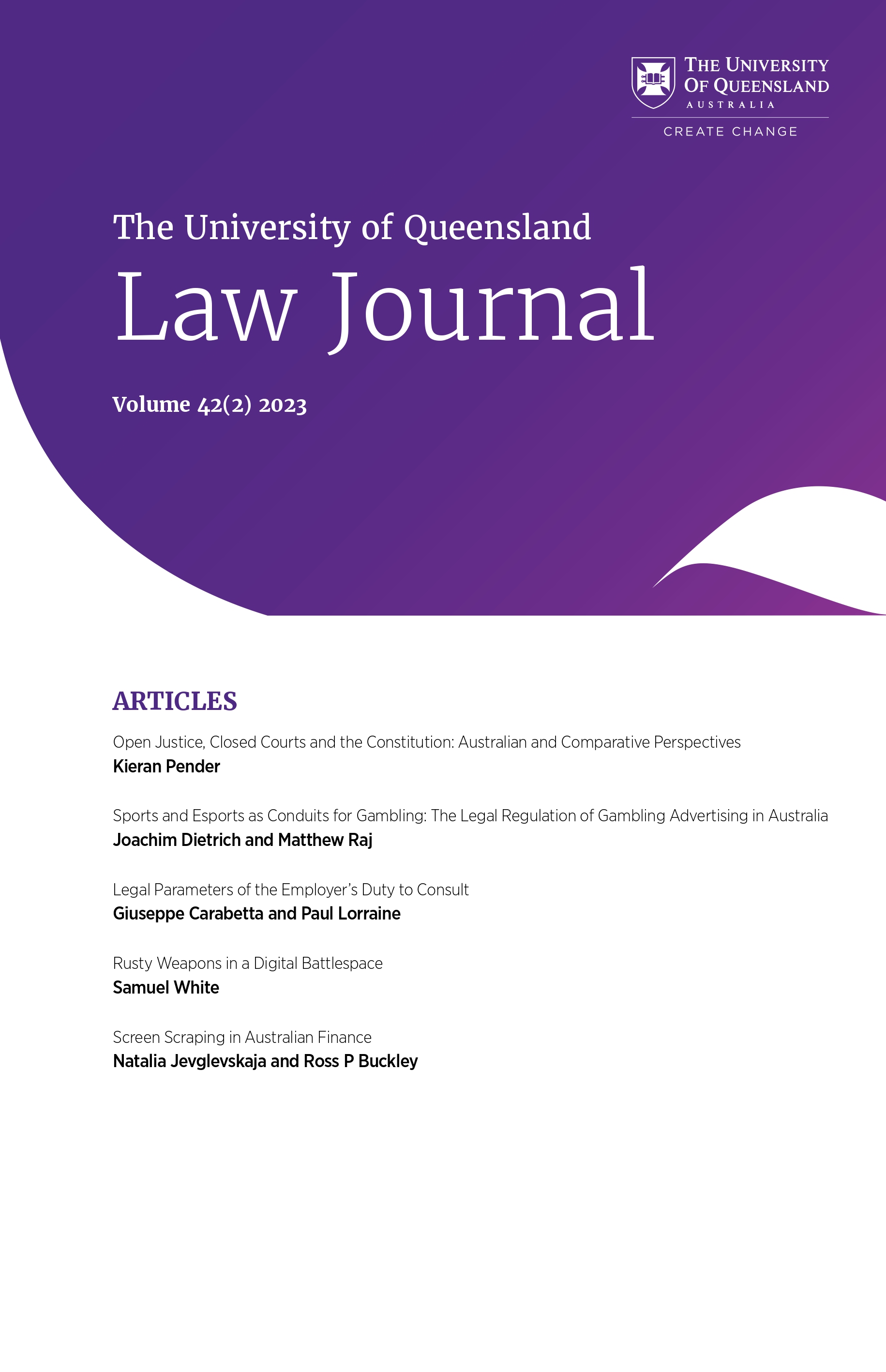Published 2023-09-24
Keywords
- royal prerogative,
- executive power,
- offensive cyber operations,
- modern warfare,
- constitutional law
Abstract
This article explores the evolving landscape of foreign interference in domestic affairs, particularly in the context of ‘information operations’ facilitated by the internet. The primary focus of the article is on the lawful authority to respond to external information operations, and how this authority may be shaped by international law. Specifically, the article explores the royal prerogative in two manifestations — the war prerogative, and external affairs prerogative — as a potential source of authority. In doing so, the article employs an analytical framework by Winterton, distinguishing between the ‘breadth’ and ‘depth’ of constitutional executive power. The article acknowledges the limited case law and debates surrounding these prerogatives’ scope and triggers, and slight nuances between British and Australian jurisprudence. It discusses the relationship between the war prerogative and the existence of armed conflict and touches on how international law can support the exercise of the war prerogative through the ‘public policy test’. Drawing from international legal perspectives, the article references United Nations resolutions from 1976 and 1981 that emphasise the importance of domestic legal remedies against information operations. It stresses the duty of states to combat the dissemination of false or distorted news that interferes with other states’ internal affairs. In sum, the article concludes that, while countering IOs is a matter requiring domestic legal authority, international law can likely extend the ambit of the royal prerogative and should also, as a matter of public policy, apply to such campaigns.
